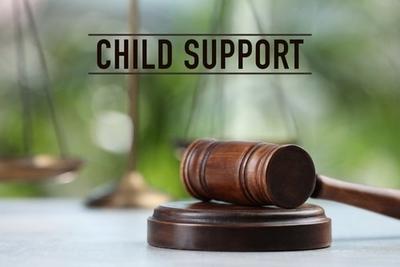Recent Blog Posts
How Is Spousal Maintenance Addressed in an Illinois Divorce?
 Going through a divorce can be a difficult process. If you are planning to end your marriage, you will likely have many questions about the legal issues that may affect you, and you will also need to make sure you will be able to support yourself after your marriage has ended. Reaching agreements about finances can be challenging and time-consuming, and you will need to be prepared to address issues related to financial support. If there is a significant difference between the level of income you earn when compared to your spouse, spousal maintenance may be a factor that you will need to consider.
Going through a divorce can be a difficult process. If you are planning to end your marriage, you will likely have many questions about the legal issues that may affect you, and you will also need to make sure you will be able to support yourself after your marriage has ended. Reaching agreements about finances can be challenging and time-consuming, and you will need to be prepared to address issues related to financial support. If there is a significant difference between the level of income you earn when compared to your spouse, spousal maintenance may be a factor that you will need to consider.
While Illinois law uses the term spousal maintenance to refer to support paid by one spouse to the other, these payments are commonly known as alimony or spousal support. The higher-earning spouse may be required to pay a certain amount each month to the lower-earning spouse. By understanding when these types of payments may be ordered, spouses can ensure that this issue will be addressed correctly during the divorce process.
How Are Assets Divided in an Illinois Divorce?
 Property division tends to be one of the most challenging issues for couples to address during a divorce. Most of the time, neither party will get exactly what they want when dividing assets. Spouses should be open to compromise and understand that to get what they want, they need to be able to consider what the other party wants and why they are asking for it. To ensure that these issues will be handled correctly, it is important for spouses to understand how the laws in Illinois will affect the process of dividing marital property.
Property division tends to be one of the most challenging issues for couples to address during a divorce. Most of the time, neither party will get exactly what they want when dividing assets. Spouses should be open to compromise and understand that to get what they want, they need to be able to consider what the other party wants and why they are asking for it. To ensure that these issues will be handled correctly, it is important for spouses to understand how the laws in Illinois will affect the process of dividing marital property.
The Difference Between Marital and Non-Marital Property
Marital property will need to be divided between divorcing spouses, but each spouse will usually be able to continue owning any non-marital property. The distinction between these two types of property depends on when and how assets were acquired and, in some cases, how property has been used and combined with other assets.
Parental Responsibilities: Making a Parenting Plan
 Parental responsibilities refer to essential decisions regarding children of divorced or unmarried parents. Parenting plans state who will make the important decisions for a child and how these decisions are made. A parenting plan also needs to include information about parenting time, or the time each parent will spend with the child.
Parental responsibilities refer to essential decisions regarding children of divorced or unmarried parents. Parenting plans state who will make the important decisions for a child and how these decisions are made. A parenting plan also needs to include information about parenting time, or the time each parent will spend with the child.
The parenting plans must be filed 120 days after asking for parental responsibilities. The parties can file a single parenting plan if both parties agree on parental responsibilities. Both parents must sign this. If parties disagree, then they should file separate plans. If neither party creates a parenting plan, then the court will determine the terms of the parenting plan based on what is in the child’s best interests.
In an Illinois divorce case, parenting time is the amount of time each parent will have with the child or children. It is important to note that parenting time does not necessarily equate to legal custody rights; rather, it refers solely to how much physical time a parent is allowed with the child or children on a regular basis. Parenting time may also be referred to as visitation rights.
Enforcing Child Support in Illinois
 A divorce involving children is always tricky, and it can be complicated when handling child support matters. Child support is an essential source of financial support for divorced and single parents. If your child's other parent is not paying court-ordered child support after your divorce, you have two main options. You can try to enforce the child support order through the Illinois Department of Child Support Services or through the court. If a parent fails to make their court-ordered child support, then your first step should be hiring an experienced family law attorney.
A divorce involving children is always tricky, and it can be complicated when handling child support matters. Child support is an essential source of financial support for divorced and single parents. If your child's other parent is not paying court-ordered child support after your divorce, you have two main options. You can try to enforce the child support order through the Illinois Department of Child Support Services or through the court. If a parent fails to make their court-ordered child support, then your first step should be hiring an experienced family law attorney.
Receiving Child Support From a Non-Paying Ex
The Illinois Department of Child Support Services uses various administrative methods outside of the court system to help pursue administrative remedies. These include:
-
Wage garnishments
Enforcing a Divorce Decree in Illinois - What You Should Expect
 When a divorce decree is finalized, other aspects such as a parenting plan, child, and spousal support are also finalized. The divorce decree is legally binding. However, some people may dislike the terms and violate their legal obligations by refusing to pay child support or blocking the other parent from visiting their children. There are legal consequences for anyone who violates the terms of a divorce decree or order.
When a divorce decree is finalized, other aspects such as a parenting plan, child, and spousal support are also finalized. The divorce decree is legally binding. However, some people may dislike the terms and violate their legal obligations by refusing to pay child support or blocking the other parent from visiting their children. There are legal consequences for anyone who violates the terms of a divorce decree or order.
How The Court Can Intervene
A divorce decree in Illinois is a court document that officially ends the marriage. It includes information such as the names of both parties, the date of separation and any orders concerning division of marital property or payment of spousal support or child support. A judge must sign a final divorce decree before a couple can legally be divorced in Illinois. The decree is the end result of a dissolution of marriage that either party can take to court. It outlines all issues which were agreed upon by both parties, and it renders a legally enforceable judgment.
4 Examples of Domestic Violence and How Illinois Law Protects Victims
 The state of Illinois takes domestic violence charges seriously and takes serious action against perpetrators. Before and during the divorce process, victims have the right to get protection orders to safeguard themselves and their families. But what constitutes abuse? This article will discuss what that entails and how victims are protected in the state.
The state of Illinois takes domestic violence charges seriously and takes serious action against perpetrators. Before and during the divorce process, victims have the right to get protection orders to safeguard themselves and their families. But what constitutes abuse? This article will discuss what that entails and how victims are protected in the state.
What Constitutes Domestic Violence?
In Illinois, domestic violence is defined as abuse that includes:
-
Striking (such as hitting, punching, biting, etc.)
-
Harassment (physical or mental)
-
Threatening (threats of violence, for example)
-
Interfering with personal liberty (such as locking the victim inside the house, taking away their keys, or restricting liberal movement)
What an Illinois Judge Considers During a Child Relocation Order
 Child relocation orders can be a complicated matter in Illinois, as they involve uprooting a child's life and potentially disrupting their relationship with one parent. Illinois courts take child relocation cases very seriously, and judges carefully consider a variety of factors before making a decision. In this article, we will discuss what an Illinois judge considers during a child relocation order.
Child relocation orders can be a complicated matter in Illinois, as they involve uprooting a child's life and potentially disrupting their relationship with one parent. Illinois courts take child relocation cases very seriously, and judges carefully consider a variety of factors before making a decision. In this article, we will discuss what an Illinois judge considers during a child relocation order.
Best Interests of the Child
The primary consideration for an Illinois judge during a child relocation order is the child's best interests. This includes their physical, emotional, and mental well-being and relationship with each parent. The judge will consider factors such as the child's age, health, and educational needs.
Reason for the Move
The reason for the move is also an important factor that an Illinois judge considers during a child relocation order. The judge will want to know why the relocating parent is moving and whether the move is in the child's best interests. The judge may be more likely to grant the relocation order if the move is necessary and beneficial to the child.
What is Involved in a Contested Divorce in Illinois?
 A divorce can happen for many reasons. Depending on the issues the parties faced that resulted in the irretrievable breakdown of the marriage, your divorce proceeding may be contested or uncontested. A contested divorce means the two parties cannot agree on one or more terms. On the other hand, an uncontested divorce means the couple agrees on all matters.
A divorce can happen for many reasons. Depending on the issues the parties faced that resulted in the irretrievable breakdown of the marriage, your divorce proceeding may be contested or uncontested. A contested divorce means the two parties cannot agree on one or more terms. On the other hand, an uncontested divorce means the couple agrees on all matters.
Some common issues that arise during divorce and that can contribute to the divorce being contested are:
-
Child custody and visitation rights
-
Child support
-
Alimony or spousal support
-
Division of assets and property
The Benefits of Postnuptial Agreements
 You may have heard of prenuptial agreements between a couple before marriage, but have you heard of postnuptial agreements? A postnuptial agreement, also known as a post-marital agreement, is a legal document created by couples who are already married.
You may have heard of prenuptial agreements between a couple before marriage, but have you heard of postnuptial agreements? A postnuptial agreement, also known as a post-marital agreement, is a legal document created by couples who are already married.
It outlines the division of assets and liabilities in the event of a divorce or separation. Postnuptial agreements can be created at any time during the marriage and can offer plenty of benefits for couples.
Let’s discuss some of the key benefits of postnuptial agreements, to show you why you may want to consider getting one.
Just remember to always consult an experienced DuPage County family law attorney for guidance on matters of pre- and postnuptial agreements.
Avoid Legal & Financial Disputes
The primary benefit of postnuptial agreements is that they can help couples avoid costly and contentious legal battles in the event of a separation or divorce.
Evaluate Why Your Marriage Ended to Prepare for Divorce
 Not all marriages work out, and sometimes irreconcilable differences lead to a partner’s decision to end their marriage. Unfortunately, divorce is extremely common in the state of Illinois.
Not all marriages work out, and sometimes irreconcilable differences lead to a partner’s decision to end their marriage. Unfortunately, divorce is extremely common in the state of Illinois.
While there are many reasons why couples may decide to end their marriage, several issues tend to come up again and again in divorce cases. If you are planning to divorce soon, evaluating the reasons your marriage ended can help you prepare for the divorce process.
Infidelity, Adultery, and Cheating
Often cited as one of the most common reasons for divorce, infidelity can be a devastating blow to the other spouse and can cause irreparable damage to the trust and intimacy of the marriage.
Infidelity may also lead to strong feelings of anger, betrayal, and resentment that may be difficult to overcome, even with the help of a support system or marriage counselor. If your marriage is ending because someone cheated, it is may be difficult for you and your spouse to negotiate divorce issues such as property division and the allocation of parental responsibilities. Consider working closely with your divorce lawyer to navigate these issues during divorce.











 630-352-2240
630-352-2240



